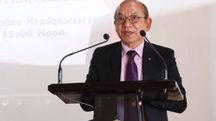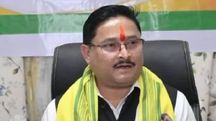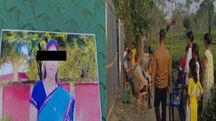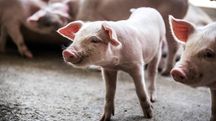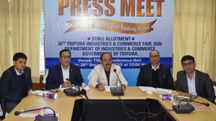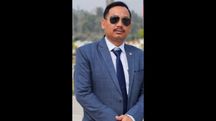Arunachalee Sukhoi Pilot Mohonto Panging Turns Weaving Enterpreneur: Here's His Story
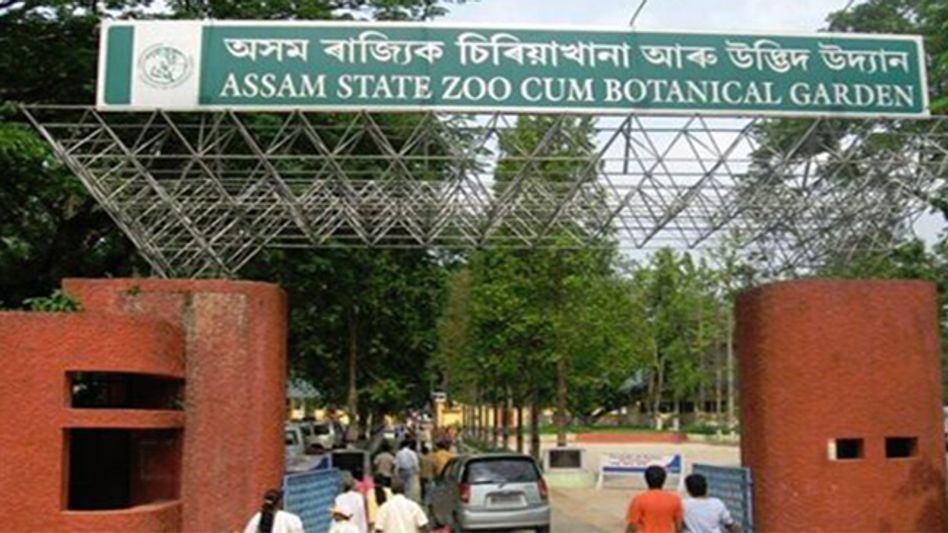 sukhoi pilot
sukhoi pilotBy: Axomson
The Bogibeel Bridge constructed between upper Assam’s Dibrugarh and Dhemaji districts has helped a lot in improving the connectivity in the region. The bridge has made it possible for people to reach places which were previously considered to be out of common reach, especially in the state of Arunachal Pradesh. These places carry stories of their own, stories held close to heart but seldom heard of in wider circles. One such place is the picturesque town of Pasighat and one such story is that of economic independence achieved by a son of the soil.
https://www.facebook.com/1660881447544914/posts/2333917060241346/
Pasighat, the headquarters of the East Siang District is a sleepy yet historic town. It is in fact the oldest town of Arunachal Pradesh serving as the administrative headquarters of the British after they established their territorial expanses in the region. Few know that Pasighat boasts of the first ever mechanized textile industry of the state (and the greater upper Assam region as well). Even fewer people know the story behind this industry and its founder. Back in 2014, Mohonto Panging was a Group Captain in the Indian Air Force having the special credit of being a Sukhoi Pilot.
So when he announced that he wished to quit his job and start a textile industry, everyone including his friends and family thought he was being crazy. More so because setting up an industry in this region which has no assured supply of power, no established transportation or infrastructure therin, no supporting eco systems coupled with troubles from local unions, is indeed a daring move. But Panging was adamant. “What is the point of an education if you don’t come and give back to your people?” he says. The ex- Sukhoi Pilot got the idea of setting up a textile industry after visiting a few such industrial units during his stay in Ahmedabad. “Everyone wears clothes. So someone must be supplying it right? And over here in the North East we have so many different ways of wearing apparel. Hard and smart work will no doubt bolster industrial growth in this sector.” he says as he shows us around the production unit.
He is right. The many tribes in Assam and the North Eastern region have their own weaving styles and traditional attire. Weaving has been an integral part of the socio-cultural life of the people of the region. After resigning from his job as a group captain in the air force, Mohonto Panging returned home and started planning for setting up the industry. The former Sukhoi Pilot first approached North East Development Finance Corporation Ltd (NEDFi) for a loan. Although they were receptive of his profile, they rejected his proposal over the phone citing non viability of the project and previous such proposals which hadn’t sustained. He then requested for a personal interaction with the people in charge. His argument was using successful ventures instead of quoting failures to judge the viability of a project. He used the examples of other such textile units like ‘Joi Aai Textiles’ in Nagaon, Assam which was running successfully for thirty years at that time. He approached NEDFi once again and this time his loan was approved. After initial works he was able to set up the industrial unit in 2015. He named it ‘Elam,’ meaning pure in Greek. He had brought in the machinery from Ahmedabad and sourced the yarn from Guwahati. This yarn is originally produced in south India and later dyed and sold by traders in Guwahati. Elam is the first mechanized textile industry in Arunachal Pradesh. In fact it is the only one of its kind in this part of the country.
For the first three years of operation, the unit had no power supply. But the former Sukhoi Pilot being a resilient person didn’t give in to this and for three years he continued operating the industry by using DG sets. He invited the chief minister, minister of textiles, Governor etc to come and have a look at his efforts. When they realized his efforts, they also started to be more open towards the industry. Three years later, a transformer had been set up and now the area surrounding Elam has become a small scale industrial estate. Now they were able to think about maximum productivity because the availability of power meant the possibility of working overtime. Elam produces handloom and textile goods ranging from local demands like wrap arounds, tribal jackets, shawls, towels (probably the softest one that this author has ever come across) to customized curtains, file covers as well as Gamosas. It has now become an example of success for NEDFi to cite.
By 2017, under the new textile policy of the Government, eight apparel production centers were planned to be set up for each of the North Eastern states. The one in Arunachal Pradesh was set up in Pasighat itself and Panging was asked to take over its reins and manage it. This unit has the production capacity of 2000 apparel and 5000 knitwear in an 8 hour shift. Right now there are almost a hundred people, all local villagers from Arunachal Pradesh and Assam, employed under Panging.
On being asked about his views regarding the viability of entrepreneurship in Assam and the North East region, Mr. Panging had some interesting views. “We have always looked down upon business in this region. This attitude has resulted in the control over the market to go to outsiders. Major urban markets and sites of possible industrial development like Dibrugarh and Tinsukia are now controlled by people from outside the state. There is not a single Assamese trader in Guwahati’s Fancy Bazar. Who let this happen? When I was a kid, I used to ask my mother, how could you let this happen?” According to him setting up an industry helps create multifold employment. This is because of the need of a supporting ecosystem in the industry. For example a big textile industry will definitely need more allied backward chain and forward chain industries like the supply of raw materials, transportation as well as dying, embroidery etc.
The ex Sukhoi Pilot is of the belief that despite the Britishers leaving many years back the people of Assam and North East are not really independent. Actual independence according to him is self-reliance, self-production and being able to provide employment to your own people. He urges everyone, especially youth from Upper Assam and Arunachal Pradesh to pick up trade. Unless self-production happens, the region will always be under the control and at the mercy of outsiders. If due to some reason an economic blockade were to happen, the entire market of the North East will shut down. Thus, economic power is the true power.
There is no doubt that Mr. Panging’s thoughts are of essence. A long time back, revolutionary poet and writer Ambikagiri Raichoudhury had asserted on the importance of control over the fields and markets. Most of the brilliant brains of the region are now being drained to other states just because of the unavailability of employment or lack of acknowledgement of skills. The money generated in the region also moves out of it due to exploitation of big corporations. The need of the hour is to remember Gandhi’s idea of emphasizing on the numerous options available for cottage industries and homegrown products, realize our strengths and then capitalize on them to become an indomitable economic power. In this regard, Mohonto Panging’s words are pure gold.
Support Inside Northeast (InsideNE), an independent media platform that focuses on Citizen-centric stories from Northeast India that are surprising, inspiring, cinematic and emotionally relevant.
Readers like you make Inside Northeast’s work possible.
To support our brand of fearless and investigative journalism, support us HERE.
Download:
The Inside Northeast app HERE for News, Views, and Reviews from Northeast India.
Do keep following us for news on-the-go. We deliver the Northeast.
Copyright©2025 Living Media India Limited. For reprint rights: Syndications Today
